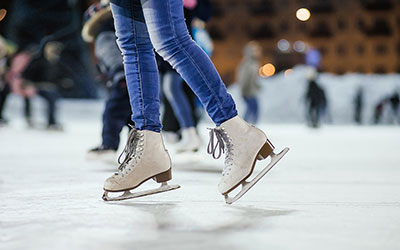 Many popular winter sports such as skiing, snowboarding, snowmobiling, and even sledding can be high risk. Every year, thousands of people are treated for head injuries associated with these winter activities, and too many of those injuries turn out to be serious or, sometimes, fatal. January is National Winter Sports Traumatic Brain Injury Awareness Month. According to the American Association of Neurological Surgeons, sports injuries are rarely fatal, but the majority of fatalities due to sports injury are the result of traumatic brain injury. Keep reading to find out the real risk and how can you protect yourself and your loved ones from sports injuries this winter.
Many popular winter sports such as skiing, snowboarding, snowmobiling, and even sledding can be high risk. Every year, thousands of people are treated for head injuries associated with these winter activities, and too many of those injuries turn out to be serious or, sometimes, fatal. January is National Winter Sports Traumatic Brain Injury Awareness Month. According to the American Association of Neurological Surgeons, sports injuries are rarely fatal, but the majority of fatalities due to sports injury are the result of traumatic brain injury. Keep reading to find out the real risk and how can you protect yourself and your loved ones from sports injuries this winter.
What is traumatic brain injury?
Traumatic brain injury is a disruption in normal brain functioning caused by a jolt to the head. Traumatic brain injuries can range from mild to severe. Someone who has sustained a mild concussion may experience headaches, vision problems, nausea, cognitive disturbance, and mood swings. In a best case scenario, these symptoms will resolve within a few weeks with no permanent damage to the brain. Severe head injuries, often associated with longer periods of unconsciousness, can result in permanent personality changes, emotional and cognitive disturbances, and other lasting physical effects.
How is traumatic brain injury caused?
Traumatic brain injury can be caused by any serious blow to the head or body. In addition to sports injuries, common causes include falls, motor vehicle accidents, and violence.
5 Tips for prevention:
- Wear a helmet: Helmets can prevent skull fractures and potentially minimize the harmful effects caused by mild concussions. In recent years, helmet use has been steadily increasing among snowboarders and skiers.
- Stay in designated areas: Never leave marked trails or ski areas, and always use the buddy system when sledding or recreating in areas that are unpatrolled.
- Use proper technique: Just as with lifting heavy boxes, using proper technique when doing winter sports can be the difference between getting injured or not. Learn and use good form when skiing, skating or snowboarding.
- Get in shape: It's easy to get injured if your body isn't prepared for strenuous or more challenging activity. Be sure to stay in good shape in the off season, and if you don't, ease in slowly.
- Avoid risky behavior: One downside of increased helmet use among skiers and snowboarders is that many think it gives them a free pass to engage in risky behavior. Don't let a helmet be an excuse to do things you wouldn't do if you weren't wearing one in the first place.
Serious head injuries from winter sports are preventable. This season, do your part to keep your loved ones safe and sound on the slopes and in the snow.
For any health insurance questions, call or contact Litaker Insurance today.
